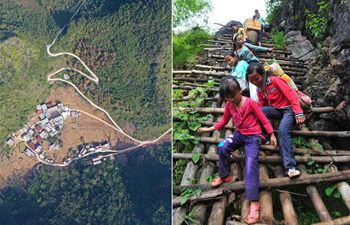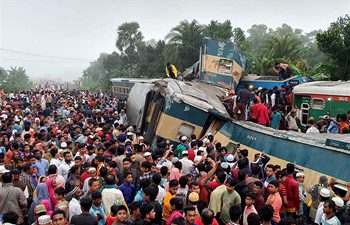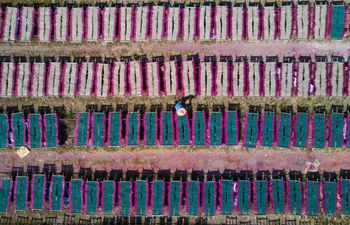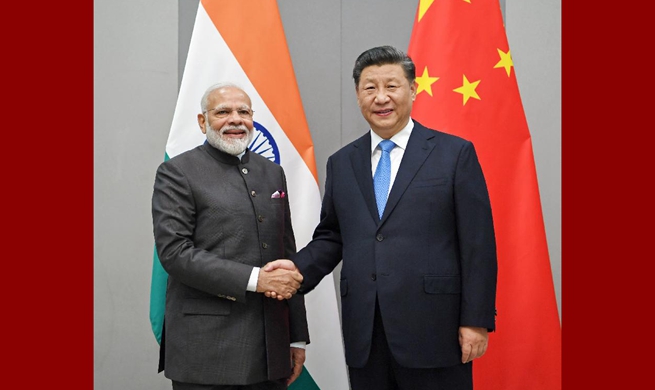VIENTIANE, Nov. 14 (Xinhua) -- Lao health authorities are advising people across the country to clear out potential mosquito breeding sites after dengue fever claimed 74 lives and more than 37,700 people have contracted the virus so far this year.
The warning comes this week after more cases of dengue fever have been detected with most of the infections and deaths recorded in the capital Vientiane and the southern provinces of Laos, local daily Vientiane Times reported on Thursday.
Director General of Lao National Center for Laboratory and Epidemiology, Department of Communicable Disease Control, Onechanh Keosavanh, outlined authorities' concerns and measures to control and prevent dengue.
Meanwhile, improvement of the diagnosis and treatment of dengue at provincial and district hospitals and dispensaries is essential to prevent unavoidable deaths, he said.
"If you fall ill at this time of the year, you should consider the fact that dengue could be the likely cause. Please go to a hospital for a diagnosis as quickly as possible. Don't try to buy medicine at a pharmacy and take it at home," he advised.
"Some people have already died because they self-medicated instead of having their symptoms monitored by a physician," Onechanh added.
Lao Minister of Health Bounkong Syhavong urged sector officials to control and prevent dengue when addressing the ministry's annual review and planning meeting. He expressed concerns about comparisons with the same period in 2018, when only 15 people died and about 5,600 people contracted the virus. To address the threat, health officials will need to continue to educate individuals and communities so that they understand the dangers and take active steps to prevent it.
Health departments are advised to encourage related entities to campaign about dengue and raise awareness of preventive measures in districts and dispensaries.
According to the World Health Organization, dengue is one of the fastest emerging infections and is currently the most rapidly spreading viral disease known, with Thailand, Vietnam, the Philippines and Singapore also seeing high incidence. The number of cases in the Western Pacific Region has more than doubled over the past 10 years.
In particular, the Asia Pacific bears 75 percent of the current global dengue disease burden and accounts for more than 70 percent of the estimated 2.5 billion people at risk globally.
The disease has now spread to new geographical areas that were previously unaffected, and this trend is predicted to continue.













